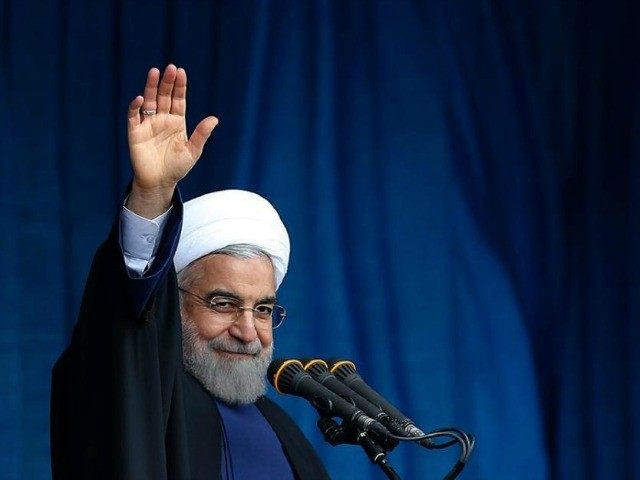While negotiators face a deadline to finalize a nuclear deal with Iran that is less than 30 days away, the United Nation’s nuclear watchdog reports that it remains concerned about the possible existence of undisclosed activity in the Islamic Republic related to the development of a nuclear weapon.
Moreover, the U.N.’s International Atomic Energy Agency (IAEA) also documented a 20 percent increase of Iran’s nuclear fuel stockpile that occurred over the last 18 months of negotiations.
“The agency is not in a position to provide credible assurance about the absence of undeclared nuclear material and activities in Iran, and therefore to conclude that all nuclear material in Iran is in peaceful activities,” explicitly states the IAEA in a report issued Friday.
IAEA reported that it has obtained more information that further corroborates its November 2011 analysis “indicating that Iran has carried out activities that are relevant to the development of a nuclear explosive device.”
The agency mentioned that it “remains concerned about the possible existence in Iran of undisclosed nuclear-related activities involving military related organizations, including activities related to the development of a nuclear payload for a missile.”
“The Annex to the Director General’s November 2011 report… provided a detailed analysis of the information available to the Agency at that time, indicating that Iran has carried out activities that are relevant to the development of a nuclear explosive device,” it later added. “This information is assessed by the Agency to be, overall, credible. The Agency has obtained more information since November 2011 that has further corroborated the analysis contained in that Annex.”
President Obama’s contention that Iran’s nuclear program has been “frozen” over the last 18 months of negotiations is weakened by the IAEA finding that the Islamic Republic’s stockpile of nuclear fuel has increased.
“Iran has not suspended all of its enrichment related activities,” reports the IAEA, noting, “All of the enrichment related activities at Iran’s declared facilities are under Agency safeguards, and all of the nuclear material, installed cascades, and feed and withdrawal stations at those facilities are subject to Agency containment and surveillance.”
Nevertheless, at Iran’s Parchin site, “the Agency has continued to observe, through satellite imagery, the presence of vehicles, equipment and probable construction materials, but no further external changes to the buildings on the site. As previously reported, the activities that have taken place at this location since February 2012 are likely to have undermined the Agency’s ability to conduct effective verification.”
The New York Times reports that the increase in nuclear fuel stockpile will increase the U.S. efforts to reach a deal.
It “poses a major diplomatic and political challenge for President Obama and Secretary of State John Kerry… as they enter a 30-day push to try to complete an agreement by the end of June,” mentions The Times article.
“In essence, the administration will have to convince Congress and America’s allies that Iran will shrink its stockpile by 96 percent in a matter of months after a deal is signed, even while it continues to produce new material and has demonstrated little success in reducing its current stockpile,” it continues.
The prospective nuclear deal, if reached, would allow Iran to maintain a stockpile of only 300 kilograms (about 660 pounds) of nuclear fuel, less than would be required to build a single bomb, notes The Times.
“That means Iran, which insists its nuclear program is for civilian purposes, would have to rid itself of more than nine tons of its stockpile in a matter of months,” it explains. “One easy solution would be to ship the fuel out of the country, but that is a politically fraught topic for the Iranians — and one that their deputy negotiator, Abbas Araqchi, ruled out in March.”
On Saturday, Secretary Kerry met with Mohammed Javad Zarif, his Iranian counterpart, in Geneva to discuss how Iran plans to destroy its excess stockpile and other obstacles to a final nuclear deal. Kerry was joined by U.S. Energy Secretary Ernest J. Moniz during the talks.
“The numbers published Friday by the atomic energy agency show that Iran has continued to enrich uranium aggressively, even though it knew that it was not meeting its goals of converting its stockpile into reactor rods,” reports The Times.

COMMENTS
Please let us know if you're having issues with commenting.